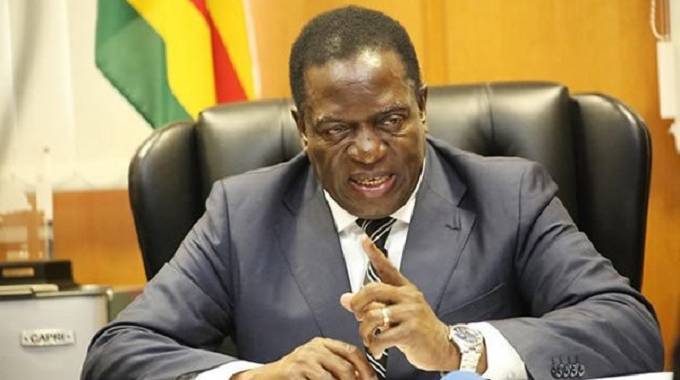EDITORIAL COMMENT: Fuel price increase meant to eliminate black market

President Mnangagwa announced a significant fuel price increase on Saturday night, a decision that isn’t too surprising given the prevailing shortage of the commodity and other market conditions.
A litre of petrol now costs $3,31; more than double the old price of around $1,45.
A litre of diesel now costs $3,11, up from around $1,35.
This is the second increase in the price of fuel in less than two months after the Zimbabwe Energy Regulatory Authority pegged prices in early December last year.
Petrol and diesel have been in short supply since October when the foreign currency shortage worsened, causing widespread increases in the prices of basically all goods and services in the country.
Long queues at filling stations accepting bond and digital payment options have become the order of the day.
The supply challenges triggered the emergence of a black market for fuel where prices were determined by movements in the parallel market rate of the bond to the US$.
Vultures in the opposition started trying to mobilise around the fuel shortage which made the supply gaps a national security threat. Such a situation is bad for any economy, hence the Government’s timely intervention on Saturday.
“Following the persistent shortfall in the fuel market attributable to the increased fuel usage in the economy and compounded by rampant illegal currency and fuel trading activities, Government has today (yesterday) decided … with effect from midnight tonight (Saturday night), a fuel pump price of $3,11 per litre for diesel, and $3,31 per litre for petrol will come into effect,” the President said.
“These prices are predicated on the official exchange rate of 1:1 between the bond note and the United States dollar and also on the need to keep fuel retailers viable.”
The new prices are indeed steep looking at where they were before, but considering the prevailing foreign currency shortage and the fact that the Government spends hard currency to import fuel for domestic consumption the prices that were prevailing prior to midnight on Saturday were not sustainable.
The old prices amounted to a “subsidy” which our foreign-currency starved country could not continue to bear.
We take this review as one of the bitter pills that the Government has said the people have to take so as to correct the anomalies that have been allowed to prevail in the economy for decades.
Maintaining that anomalous pricing model meant papering over cracks which, in the fullness of time, would show, possibly with disastrous economic consequences.
Therefore, the Government had to take this bold decision to increase the prices of fuel at this time and the President himself took the responsibility to announce to the nation in a televised address.
This alone must be an indication of how authorities take the Saturday night decision.
Once again, we appeal to the people to take this bitter pill for it was inevitable that it be taken in the context of the continuing efforts by the Second Republic to ensure economic stabilisation, sustainable recovery and growth.
We are hopeful that the price review will enhance supplies on the market and the winding queues disappear.
We say this because since fuel is now being sold at higher prices, more is being collected to enable the Reserve Bank of Zimbabwe to pay, in hard currency, for the importation of the commodity.
This should narrow the “subsidy” in a way, while making retailers more viable.
With the new prices in force, we don’t see a future for the black market for fuel.
Dealers were taking advantage of the shortage of fuel at service stations and the low prices that were applicable on that market to make ill-gotten money.
It has also been rumoured that some service stations, unhappy with the old prices, were deliberately undersupplying their forecourts and diverting fuel to the informal market where they sold it at higher prices.
Now that the formal prices almost match the informal ones, we don’t see any incentive for illegal dealers and service stations to continue operating underground.
The elimination of the black market coupled with the new prices and the promise for stable supplies are likely to engender more predictability on the marketplace.
One is able to plan better when they know that they will be able to buy diesel or petrol at designated places at a well known price without spending a week in a queue.
However, we acknowledge that motorists and other fuel consumers will need to get used to the new prices.
We don’t expect the price review to cause steep increases in prices of other commodities as the Government will shortly roll out tax rebates to be offered to key economic sectors such as manufacturing, mining, transport and agriculture.
By their nature, tax rebates can only be enjoyed by legitimate businesses; those that are properly registered and are paying tax to the Zimbabwe Revenue Authority.
Unregistered ones, which are not paying tax will therefore, not benefit.
This strategy guarantees that the viability of legitimate businesses is not adversely affected by the new fuel prices and their products should remain competitively priced.











Comments